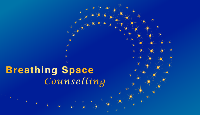

Shame Blame and Guilt - do we need them?
Shame blame and guilt are feelings which generally cause unhappiness to the person experiencing them. We have all experienced them at some time in our lives. If they are ongoing for us, what can we do about them? Let’s briefly examine what their origins are.
Firstly, Shame.Shame is an internal feeling which is devastating to the person who is made to experience it. Feelings which may trigger shame may be embarrassment, being vulnerable or exposed, being bullied or feeling inadequate. Shame stems from feeling judged by others, which in turn leads to self judgement. Once shame is felt a person conceptualises this as … “I am bad.”
Being shamed as a child and adolescent can cause a negatively focused self concept which may then lead to behaviour such as perfectionism, addiction or low self esteem. A chronically shamed person may go on to develop depression, generalised anxiety and/or social anxiety. Shame usually stems from situations where the person has experienced feelings of inadequacy, embarrassment, humiliation and self consciousness. Experiences in the schoolyard, classroom or family of origin typically commences the shame experience.
Throughout life, feelings of shame are shaped by our perceptions of how others regard us. Shame can occur around how we look, our socioeconomic status, our education, our prowess at sports or academia, and so on. Shame always has a negative impact on the person who is experiencing it, and can cause them to avoid people and events, hiding their true self and even turning to bullying behaviour to increase feelings of power and control.
To shame another can be a deliberate act or totally inadvertent. An example of deliberate shaming may be schoolyard bullying where teasing and ridicule of a child or adolescent creates feelings of shame in the victim. An example of inadvertent shaming occurred to me in Secondary school, when new teachers used to call the roll and pronounce my surname as ‘Slime-ings.’ It was actually Slimings, pronounced correctly as ‘Slimmings.’ This mispronunciation caused great hilarity in the class and for a time I was known as Slime-O.
Shame can be overcome. By shining the light of exploration on an event via an empathic and trusting dialogue. An understanding of the full context of the event, such as how old you were when it happened, what could have been the motives of others, was the event really as bad as remembered etc. Putting events in context can foster compassion for the person who experienced judgement and shame. Who owns the shame can also be explored. For instance in cases of abuse, it is the abuser who owns the shame, NOT the abused. In addition, exploring experiences of success and triumph can help to strengthen the ‘competent’ parts of the self which co-habits with the shamed parts of the self, but tends to be less noticed.
And then, Blame.Blame is a concept where something external to an individual is responsible for causing physical or emotional harm to a person or a situation. Blame can be allocated to a person or a thing, such as a Bat or a Pangolin. So in the blame game, who, or what, takes responsibility? That is the question.
Blame happens, literally everyday. When you miss the train to work it’s the public transport system’s poor timetabling, the level crossing wait time, or your child hogging the bathroom. Usually blaming something outside of self is the opposite of taking responsibility for your actions. How frequently we tend to blame other people and things is directly linked to our locus of control. The more we apportion blame to other, external events, the less in control of our lives we feel. See Locus of Control.
Blame goes hand in hand with shame in that the person who is being shamed is taking the blame for a situation. Imagine wetting the bed as a child. This condition is usually linked to brain development and reduces as the child matures. If this medical condition is not clearly explained, the child could feel defective or guilty about being different from their peers. The child with enuresis could also blame themselves for not being able to have sleepovers at friends or going to school camps, causing feelings of low self esteem and shame. The child may have overheard their parent muttering about washing bedclothes all the time, thus causing the child to take on the blame for their extra workload.
So shame and blame are brothers in arms, and have a first cousin. Guilt.
And so to Guilt.Guilt is a feeling in which a person feels responsible for causing a negative impact on someone or something, which in turn feels worrisome to the person who feels guilty. There is a continuum of guilt, mild guilt – for example forgetting to bring the neighbour’s bins in, or severe guilt such as causing physical harm to another person whether by accident or design. Once guilt is felt a person conceptualises this as… “I have done something bad.”
Guilt can be strongly linked to shame, however is the opposite of blame, in that the guilty person is taking the blame for an event, thus internalising it. Carrying guilt over the lifespan can be very burdensome and it is beneficial to offload these feelings to another person whom you can trust absolutely. Firstly the other must listen without judgement, and also facilitate your feeling whatever feelings are there about the event(s) without trying to protect you from feeling these emotions. This is what friends and family typically do, to help ‘make it better.’ This approach, however does not really salve the ongoing feelings of guilt, it places a band aid on them instead. A counselling approach is that of an unbiased listener who can listen to feelings of guilt with empathy and objectivity, reflecting and understanding how it is for you have these feelings. From this place you can experience the storied events in a safe space, and bring a more mature, comprehensive perspective to where you were in your life when the events occurred. Thus comes self compassion and understanding, and perhaps, being able to let go of these feelings.
To recap:Shame is an internalised state where a person is humiliated in some way and consequently suffers feelings of severe embarrassment and inadequacy. Shame makes the person feel that they themselves are bad. Feelings of shame can be lifelong.
Blame is the responsibility for a negative action or result, usually apportioned to something outside the self. When this occurs the person can feel vindicated and superior. When blame is internalised, it can quickly link to shame and cause a negative impact on the person having these feelings.
Guilt is an internalised state where a person feels like they have done the wrong thing. Although guilt and shame are linked, guilt is generally not as crippling as feelings of shame.
Shame, blame and guilt can co-habit inside of us for the duration of our lives. If these feelings are having an impact in your life, even if they only appear periodically, they can be worked through and looked at through a different lens. Therapies such as narrative therapy and Cognitive Behavioural Therapy (CBT) can assist you to examine these feelings for their true validity, and to find out if they truly serve you. Once examined with compassion and objectivity, these feelings may recede and be perceived differently from then on.

- Business Name
- Breathing Space Counselling
- Business Category
- Counselling & Mental Health
- Official Website
- breathingspacecounselling.com.au
- Business Number
- 64162701583
- Social Links
- Phone Number
- 0423915389
- Business Location
- 42 Camelia Ave
Mount Claremont 6010
Western Australia
Australia

